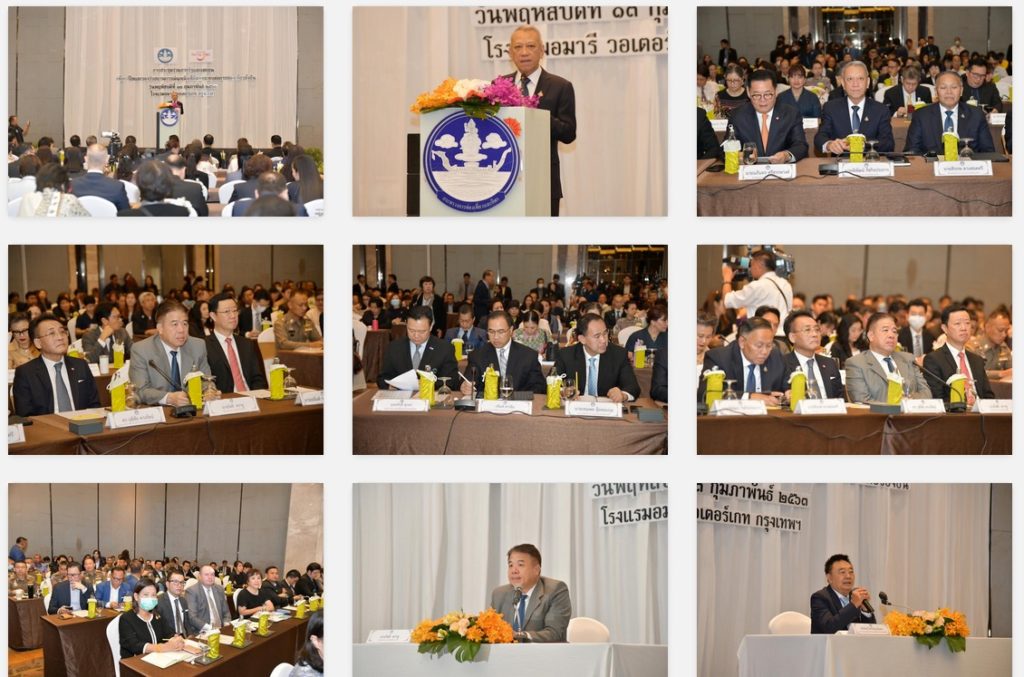
17 Feb, 2020
Expatriates left voiceless at Thai tourism crisis brainstorming session
Bangkok — When Thailand’s Ministry of Tourism and Sports organised the historic brainstorming session on February 13 to unite the Thai tourism industry in response to the coronavirus crisis, one vital sector was missing– the expatriate community. Although the meeting was called to brainstorm responses to the slump in visitor arrivals, conducting it entirely in Thai left the expatriate community voiceless and diluted the value, credibility and effectiveness of the outcomes.

Source: MoTS website
Expatriates abound in Thai tourism. From investors to operators, managers to consultants, they have played, and continue to play, key roles right across the value chain. Because they comprise such multi-national, multi-sectorial diversity, the “brainstorming session” had no input from some of the best brains in the business. Authoritative insights from their respective source markets and professional disciplines would have benefited Thai tourism and Thailand by substantially enhancing the impact of the message of normalcy and confidence that the Ministry badly wants to communicate.
The monolingual brainstorming session was in fact an extension of the drift that began when the Chinese travel rush began at the turn of the century. In the 1980s and 1990s, when Thai tourism was growing, expatriates had a seat at the table and a voice through various industry associations. Many tour companies were run by Thais, expatriates and “luk-khrungs” (mixed ethnicity) who were handling visitors from the then dominant markets of Europe, Australia and North America. Meetings of the Association of Thai Travel Agents and Thai Hotels Association, formerly the apex bodies of the industry, were in dual language format.
That changed when the Chinese tourism boom began and the generation of expat managers faded from the scene. Tour operators handling Chinese volume business moved into the various committees and councils. Thai edged out English as a medium of communication. Today, monthly meetings of both ATTA and THA are all in Thai. As a result, expatriate hotel General Managers have split and set up their own association. Other groups like the Foreign Thai Chambers of Commerce, the PATA Thailand Chapter and the Skal clubs operate in English only. The Thailand Incentive and Convention Association is the only industry body that conducts its meetings almost entirely in English. The Tourism Council of Thailand, the umbrella grouping of all the associations, has no expatriate representation.
Each of those bodies operates in linguistic silos. In the echelons of Thai tourism, dual language dialogue under one roof has ceased to exist.
This communications chasm prevails elsewhere in the Thai government too. The Ministry of Tourism and Sports website is entirely in Thai. Following a recent revamp, its visual appearance is a lot better. But as of last week, what little English content there was has disappeared. By contrast, the Tourism Authority of Thailand, the international marketing arm, runs a world-class website in English, probably one of the best of all government agencies, far superior to both Thai Airways International and Airports of Thailand.
This chasm becomes even more glaring when the MoTS website is compared to other public sector agencies which deal with the international community such as the Ministry of Foreign Affairs and Bank of Thailand. The MoTS has a phenomenal amount of quality information, such as media releases, in-depth statistical analysis, reports, studies and more. All in Thai. That makes it inaccessible to international travel groupings such as the UN World Tourism Organisation and the millions of global stakeholders (investors, researchers, academics, civil society groups, unionists), interested in various aspects of Thai tourism.
Ditto with other communication channels such as media conferences. At the Foreign Ministry, press conferences are conducted in both Thai and English. Depending on the content and target audience, the TAT press conferences follow a similar format. The MoTS press conferences are entirely in Thai.
When crisis such as the coronavirus strike, and all hands are required to be on deck, this deficiency can handicap the search for solutions. The Feb 13 brainstorming session was called by the Ministry, but to hold it entirely in Thai sent all the wrong signals. Does it not care about expatriates’ opinions? There has been a cascade of communication in Chinese. But the non-Thai and –Chinese speaking community has been left out.
Tourism Minister Phiphat Ratchakitprakarn told the gathering that it was time to convert a crisis into an opportunity. In fact, the ministry itself lost a major opportunity to involve the expatriate business community and tap their extensive global networks to spread the word. TAT Governor Yuthasak Supasorn said that Thai tourism had learnt the lesson of being over-exposed to one single market, and will focus on better balancing its source-markets in future. That will require a comprehensive multi-lingual communications effort, both internally and externally. On the marketing side, the TAT can handle it. On the management side, the Ministry cannot.
Hence, the Ministry’s first action after the brainstorming session should be to put its own house in order and establish better lines of communications with the expatriate community – the business leaders as well as the NGOs, media, educators and many other groups who may not be fluent in Thai but nevertheless have a stake in the future of Thailand. This will go a long way towards making them a recognised and respected part of the solution. Their home-grown suggestions and perspectives can be harnessed at far less cost than conducting market research abroad or hiring consultants.
Good partnerships survive on mutual respect and open communications. The absence of such a partnership with the expatriate community is a vital missing link that needs to be plugged — now!



Liked this article? Share it!